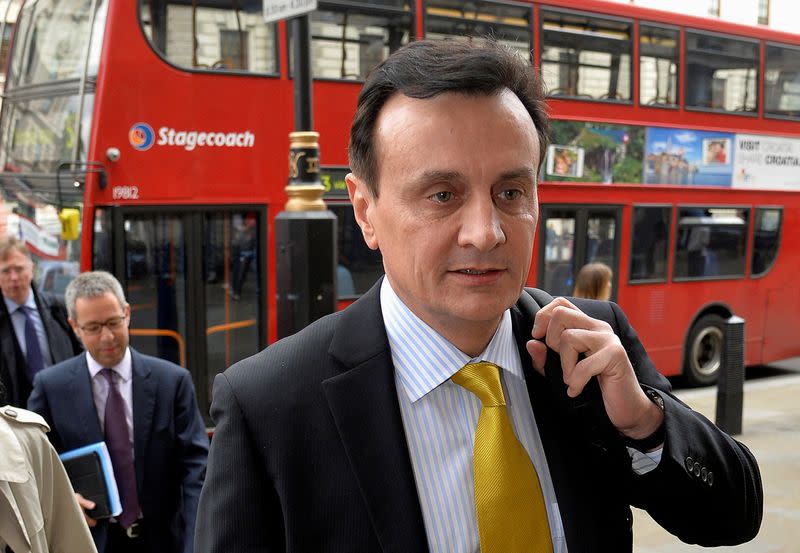AstraZeneca CEO says UK business climate deters investment
By Natalie Grover and Maggie Fick
LONDON (Reuters) -Britain's business climate is deterring biopharma companies from investing in the country, AstraZeneca chief Pascal Soriot said on Thursday, highlighting his company's decision to shift plans for a new manufacturing plant to Ireland.
The UK government's ambition to become a life sciences "superpower" has been hampered by a discouraging tax environment, Soriot said, acknowledging the country was grappling with an "explosion of costs" driven by the impact of the COVID-19 on the healthcare system.
While Britain is already considered a research powerhouse it is also lacking in other areas such as manufacturing incentives, and access to green energy, he said during a news conference after the company's results.
Without those elements, he added, companies will seek to develop drugs in other markets "where you know you’re going to get access and you’re going to get a price that can justify the investment".
The British drugmaker seeks to offset declining sales of COVID-19 medicines with its cancer, metabolic and rare disease drugs and Soriot said it is on track to deliver at least 15 new medicines this decade.
He highlighted AstraZeneca's recent decision to build a manufacturing facility in Ireland instead of the UK as evidence of Britain becoming less attractive for drugmakers.
The decision, made in 2021, was also linked to the UK government's Voluntary Scheme for Branded Medicines Pricing and Access (VPAS), a company spokesperson added.
The VPAS began in 2019 to help make drugs more affordable for the national health system (NHS), by returning a proportion of funds based on the sales of branded prescription medicines when a maximum sales growth rate is exceeded.
Initially, the VPAS rate was capped at 2% per year. However, as the pandemic raged, that triggered sharp spikes in payback rates, to 15% in 2022, then jumping to 26.5% in 2023.
Soriot suggested the payback rates needed to return to lower levels, saying that companies "didn't sign up to cover the cost of the COVID pandemic."
He also noted that clinical trials were getting delayed as the NHS is overwhelmed.
"It’s also a question of can we execute our clinical trials, do we want to invest and are we going to get the appropriate returns?” he said.
(Reporting by Natalie Grover and Maggie FickEditing by Tomasz Janowski, Barbara Lewis and Susan Fenton)

 Yahoo Finance
Yahoo Finance 

